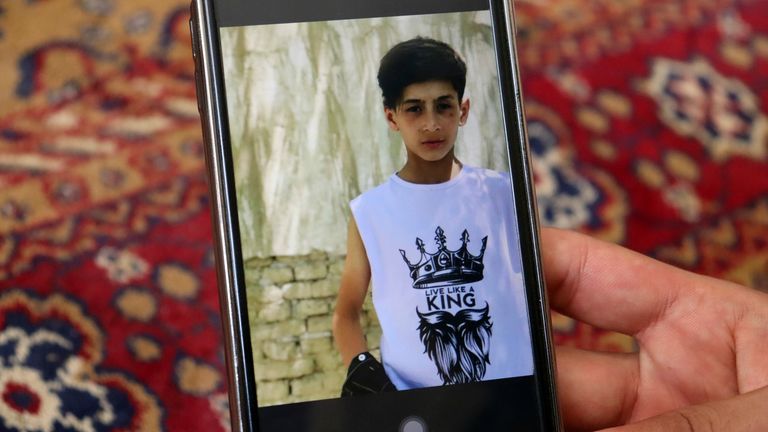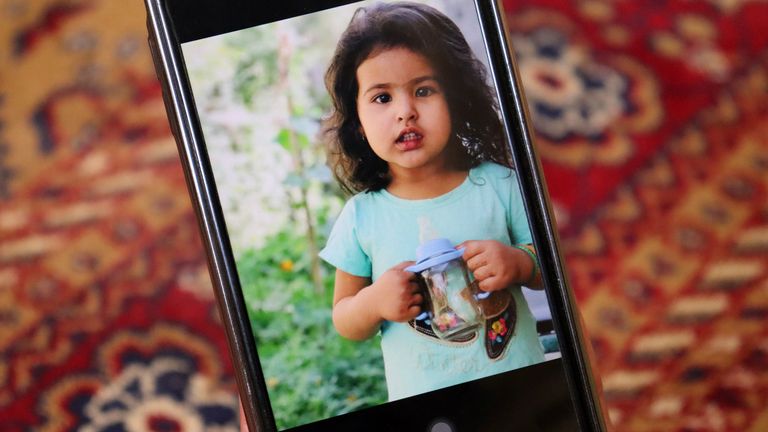The US has promised condolence payments to the relatives of 10 civilians killed in a drone strike in Afghanistan.
The victims, including seven children and an Afghan aid worker, were killed on 29 August in a strike the US said was aimed at a suicide bomber.
But Pentagon press secretary John Kirby said on Thursday that the 10 civilians were not a threat to US forces, who were in the process of withdrawing from the country at the time.
They were also not affiliated with the Islamic State Khorasan (ISIS-K) terrorist group.
It was not clear whether the condolence payments have actually been offered yet or how much money is being offered, but there is also work under way to help some of the relatives relocate to the US.
The strike killed Zemaray Ahmadi, a 36-year-old who worked for aid organisation Nutrition & Education International, along with his sons Zamir, Faisal and Farzad – aged 20, 16 and 12.
Six of his nieces and nephews were also said to have died: a boy and girl both aged two, girls aged five and seven, a six-year-old boy and a 28-year-old man.
Mr Ahmadi had been driving a vehicle into the driveway of his family compound when it was struck by the Hellfire missile.
The US had initially defended the strike, saying it targeted an Islamic State “facilitator” and disrupted the group’s ability to carry out attacks.
But reports quickly showed that Mr Ahmadi had been a long-time worker at a US aid organisation and there were no signs of a secondary blast, despite the Pentagon claiming that the vehicle contained explosives.
Weeks after the deaths, Marine General Frank McKenzie, head of US Central Command, said innocent civilians had been killed in what he described as a “tragic mistake”.
Last month Defence Secretary Lloyd Austin had said: “We now know that there was no connection between Mr Ahmadi and ISIS-Khorasan, that his activities on that day were completely harmless and not at all related to the imminent threat we believed we faced.
“We apologise, and we will endeavour to learn from this horrible mistake.”
The issue of condolence payments was raised on Thursday in a meeting between Dr Colin Kahl, under secretary of defence for policy, and Dr Steven Kwon, founder and president of the charity which had employed Mr Ahmadi.
Mr Kirby said: “Dr Kahl reiterated Secretary of Defence Lloyd Austin’s commitment to the families, including offering ex gratia condolence payments.”
He did not say how much money would be offered.
The drone strike followed a suicide bombing by ISIS-K which killed 169 Afghans and 13 US military personnel at Kabul’s airport in late August.













